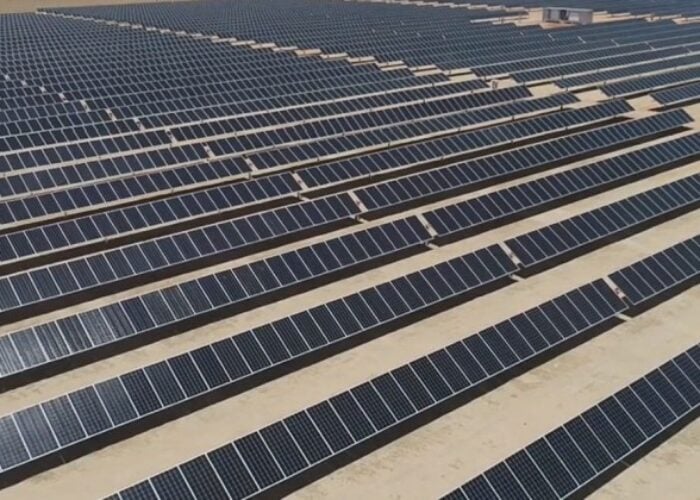Leading economics and science experts in the UK have called for an international push akin to the Apollo space mission to kick-start the deployment of renewable energy storage technology.
Speaking at an event yesterday at the UK’s House of Lords, Sir David King, the former UK chief scientific advisor, Lord Richard Layard, programme director at the London School of Economics, and Mark Maslin, professor of climatology at University College London, called for a “viral” campaign to secure international renewable energy storage funding.
Try Premium for just $1
- Full premium access for the first month at only $1
- Converts to an annual rate after 30 days unless cancelled
- Cancel anytime during the trial period
Premium Benefits
- Expert industry analysis and interviews
- Digital access to PV Tech Power journal
- Exclusive event discounts
Or get the full Premium subscription right away
Or continue reading this article for free
The event, ‘Running out of time – climate change’, hosted speakers and debate on resolutions to international energy issues. It was intended to explore solutions to energy problems ahead of the international climate change talks in Paris next year.
King, now a climate change advisor to the UK’s foreign secretary William Hague, highlighted how storage had become an “obstacle” to the full exploitation of renewable energy sources.
“We need an Apollo push [on storage]; we need a big programme, it’s not something we can debate endlessly about, we need action now, it’s not a distant promise, the technology is here,” he said.
It is not the first time King has advocated for solar power. Writing in the Financial Times last August he called for the G20 should lead global cooperation on solar energy development.
Layard urged governments to back initial storage technology funding, pointing out that most significant recent technological innovations were government funded, “not from the private sector”.
“It’s a shocking abdication of responsibility not to focus on storage and international distribution,” he said.
King cited the effect of the UK’s solar feed-in tariff as a “miracle” for PV prices.
“The volume of production started doubling, and every time production doubles, technology improves,” he said. “You can now install PV more cheaply per kilowatt than any other energy.”
He pointed out the opposite lack of incentive for crucial energy storage investment. “There is no [UK] incentive for energy storage. The US Department of Energy (DoE) understands the rapid roll out of renewables’ single obstacle is storage – which is why they are investing US$400 million in large-scale energy storage.”
The event was staged in preparation for the 2015 Climate Change convention in Paris and ahead of the publication in November of the final part of the Intergovernmental Panel on Climate Change’s latest assessment report.
King said he had seen a preview of this and that it “made for uncomfortable reading”.
“As consumers increase so do greenhouse gas emissions, but the mineral veins we use are less easy to access, so prices go up, which to our economies is devastating, in Britain we have gone passed peak oil and northern gas reserves; we used to sell a barrel of oil for US$18, but now we buy it at US$120 a barrel – this is devastating to the EU economy.”
King claimed 100% of Italy’s current fiscal deficit is caused by soaring oil prices, and 80% of the UK’s. “Dependence on fossil fuels is terrible for the economy,” he said.
Maslin said fossil fuels had “revolutionised society, but now fossil fuels are polluting the planet”.
“The same way we dealt with mercury, DTT and lead in petrol – carbon should be treated as a pollutant – we need a different form of energy,” he said. “We all need energy, the more developed a country is, the more energy it uses. If we can find win-win solutions to climate change, people will be more accepting to giving up fossil fuels.”
Maslin also addressed climate sceptics lobbying against renewable energy use.
He said: “When we’re told ‘You’re lying’ on TV, we don’t know what to say – are you going to stop believing in antibiotics and cancer tomorrow too? You can’t pick and choose what science to believe in; I would love for climate change not to be happening, but it’s science. You don’t ‘believe’ in climate change; it’s happening whether it fits in with your world view or not.”
On stalling climate change politics Maslin said: “Climate change doesn’t kill people, extreme climate, and not being prepared for it kills people.”
King ended by saying: “We hope this goes viral.”






